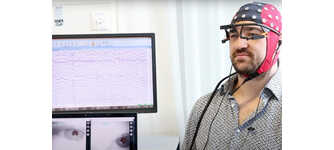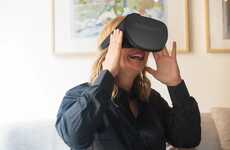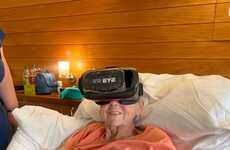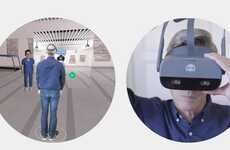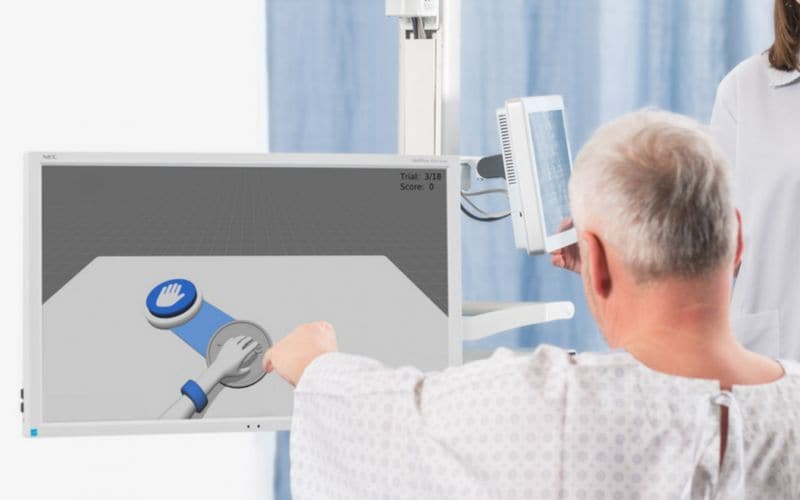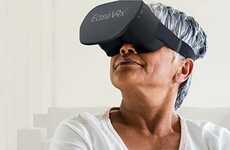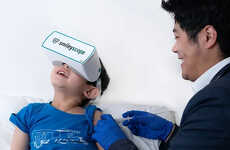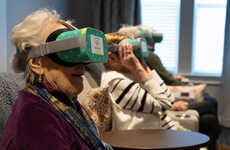
MindMaze Offers Customized VR Exercises to Treat Stroke Patients
Ellen Smith — October 12, 2017 — Tech
References: mindmaze & techcrunch
MindMaze, a Switzerland-based startup is using virtual reality as a means of mapping and responding to brain activity in healthcare and hospital settings.
After raising an impressive $100 million in funding, the company launched MindMaze Pro virtual reality -- an immersive treatment recovery system for stroke patients in the United States. Balancing between entertainment and neuroscience, this tool uses motion-tracking cameras to help patients recover. The virtual reality experience uses 3D avatars to create customized exercises for the patient, helping in the rehabilitation of limbs through engaging and reactivating cognitive function.
Through the immersive and personalized exercises, medical professionals can accurately track recovery progress in a manner that's both physically and mentally engaging for the patient.
After raising an impressive $100 million in funding, the company launched MindMaze Pro virtual reality -- an immersive treatment recovery system for stroke patients in the United States. Balancing between entertainment and neuroscience, this tool uses motion-tracking cameras to help patients recover. The virtual reality experience uses 3D avatars to create customized exercises for the patient, helping in the rehabilitation of limbs through engaging and reactivating cognitive function.
Through the immersive and personalized exercises, medical professionals can accurately track recovery progress in a manner that's both physically and mentally engaging for the patient.
Trend Themes
1. Virtual Reality Stroke Rehabilitation - Virtual Reality presents innovative solutions to stroke rehabilitation by using 3D avatars to create customized exercise programs.
2. Neuroscience and Entertainment - The fusion of neuroscience and entertainment offers unique opportunities for the development of immersive rehabilitation systems.
3. Motion Tracking Cameras for Rehabilitation - Incorporation of motion-tracking cameras in rehabilitation systems presents a new and innovative way of tracking recovery progress in real-time.
Industry Implications
1. Healthcare - Virtual Reality offers the healthcare industry a means of advancing rehabilitation systems, enhancing patient care and making recovery efficient.
2. Entertainment - Entertainment companies could leverage the fusion of neuroscience and entertainment by developing immersive and engaging games for stroke rehabilitation.
3. Technology - The incorporation of motion-tracking cameras in rehabilitation systems requires technological investment and offers new growth opportunities for tech companies in the healthcare sector.
2
Score
Popularity
Activity
Freshness

